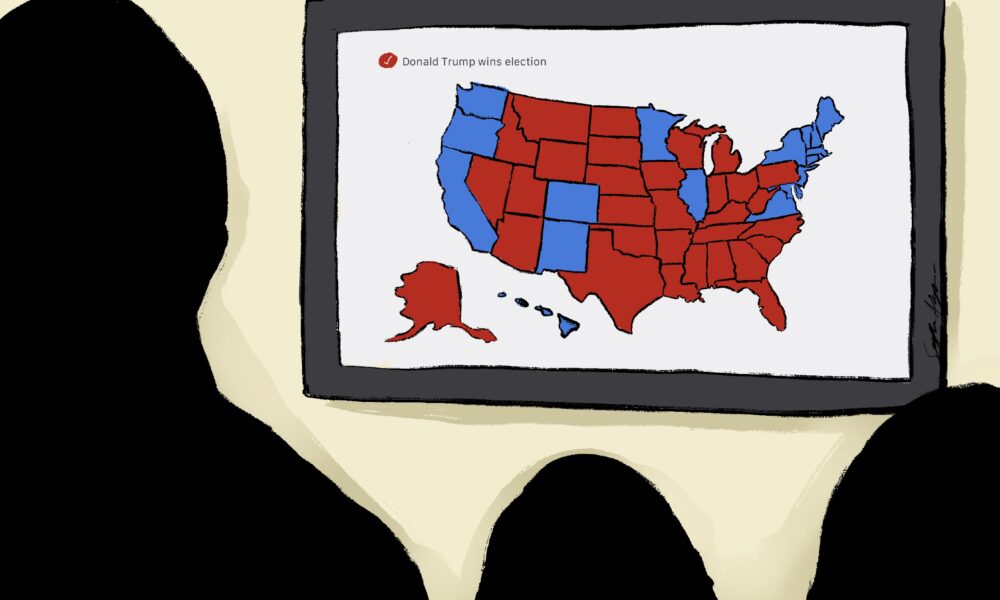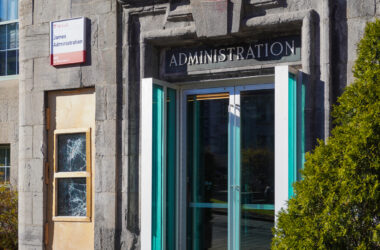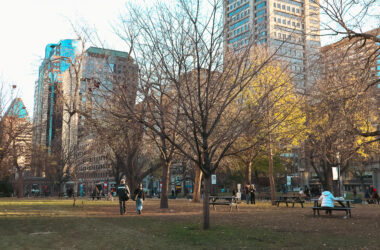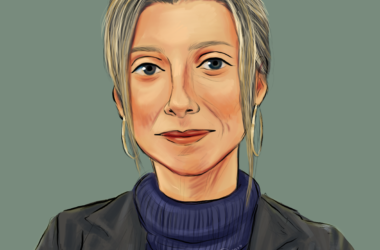Donald Trump’s election on Nov. 5, coupled with Republican control over the U.S. Senate and House of Representatives, has left some Americans at McGill wondering whether they want to return after graduation. Many students underline concerns about what a second Trump presidency could mean for abortion access, 2SLGBTQIA+ rights, immigration policy, and economic stability.
Some argue that the Republican majorities in the Senate and House could mean that Trump will face less political resistance than he did during his last presidency. Trump’s consolidation of power and his proximity to Project 2025—which calls to restrict access to abortion, facilitate large-scale deportations, and cut funding to renewable energy programs, among other measures—makes many Americans at McGill nervous.
Massachusetts native, Izzy Rudy, U1 Arts, explained that the outcome of the election makes her wary of building her future in her home country. Threats to abortion access, environmental concerns, and Trump’s plan to withdraw from the North Atlantic Treaty Organization (NATO) were the most important issues on her mind.
“Uncertainty is my biggest concern,” Rudy told The Tribune. “I think the person in charge is unstable and erratic, and because I don’t know what he has in store, I also don’t know what I have in store for my future.”
Hannah Hipolito, U2 Arts, was born and raised in Florida. Her concerns about the effects of a second Trump administration on abortion access and 2SLGBTQIA+ rights also have her questioning going back. Her high school career was marked by protests and counter-protests surrounding the Florida ‘Don’t Say Gay’ bill, which aimed to prevent discussion of 2SLGBTQIA+ issues in classrooms.
“Growing up in that environment was really hard, and I would be at these protests at my school, and there would be other students waving Trump flags,” Hipolito said. “Seeing that these are my peers, reacting that way to people being queer, makes it really hard to want to go back.”
The election of Donald Trump and the rejection of an amendment to the Florida Constitution that sought to expand abortion access in her home state solidified Hipolito’s belief that the political climate in the U.S. has soured.
“Previous to the election, I was really looking at grad schools in the U.S., very set on returning,” she told The Tribune. “However, since then, I have been kind of reconfiguring how I see the rest of my life going […] I just feel like the climate in the United States has gotten really bad, and I wonder if maybe I would just be happier somewhere else.”
Since the election, Canadian Immigration Minister Marc Miller has emphasized that Canada may have to prepare for an increase in migration from the U.S. due to Trump’s election. Wendell Nii Laryea Adjetey, Associate Professor of History at McGill, highlighted the effect that the election of Donald Trump could have on Canada as a destination for immigrants.
“When turmoil unfolds in the United States, Canada is invariably impacted. Students, professionals, and precarious people will come in droves, reviving the myth of Canada as the refuge point,” Wendell wrote to The Tribune. “It’s plausible that Canadian institutions might appear more appealing to global talent than U.S. counterparts.”
Jacob Wesoky, U3 Arts, is the Executive Vice Chair of Democrats Abroad Canada. This election, Wesoky led efforts to increase the voting rate of Americans living abroad by connecting Americans at McGill with the resources they need to vote through student outreach programs. Donald Trump’s election swayed his plans to eventually work in the executive branch of the U.S. government; however, as an outspoken Democrat, he feels no desire to leave his country for good.
“I think that that’s exactly what the Republicans want. They want us to give up,” Wesoky said about the temptation some Americans feel to remain abroad following the election. “I think that’s honestly a pretty dangerous sentiment. Obviously, I don’t blame people for wanting to leave and move to Canada, but at the same time, I think it’s important now more than ever to stay in the U.S.”









